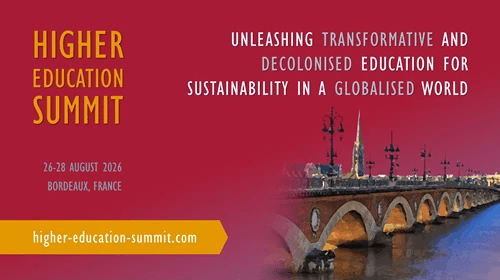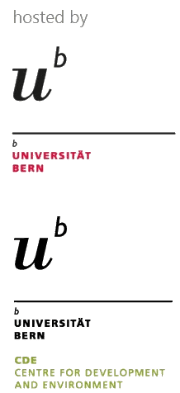
NEXT PRACTICES
Moving from best practices to next practices
We are all familiar with the term “best practice”: sharing what is working well in one institution so that it might be implemented in another. A “next practice” is about critically reflecting on how our current practices could work differently, more efficiently, more powerfully, thinking about failures, and taking into account future contexts and scenarios. It is about the process and not the final output.

"How to Promote Networking for the SDGs: Digitals maps and SDG Ambassador Program at Universität Hamburg as next practice example"
Claudia Schmitt, University of Hamburg
Two examples of SDG-related organizational development initiatives at Universität Hamburg are introduced: an SDG-Ambassador program and digital networking maps clustered by SDG topics. Experiences with and implications of these arrangements will be discussed. Lessons learned so far are presented to draw conclusions for further implementation and improvement.

"Institutionalising sustainability at universities: Lessons learned from failed projects and crushed dreams"
Felix Spira & Anselm Grahl, rootAbility
Green Offices are platforms that inform, connect and support the university community to act on sustainability. Since 2010 the model has been adapted to over 40 higher education institutions in nine European countries.
This session will focus on lessons learned on how to better institutionalise sustainability in higher education. Participants are invited to learn from the failure of the Green Offices, as well as to critically reflect on how they could improve their approach to better institutionalise sustainability at universities.

"Campus Bizia Lab: A University of the Basque Country program aimed at working towards sustainability via a transdisciplinary approach based on cooperation"
Estibaliz Saez de Camara Oleaga, University of the Basque Country
The Campus Bizia Lab seeks to address the sustainability challenges at our university’s three campuses by means of a transdisciplinary approach involving students, administrative and academic staff. These challenges include Energy Transition, Circular Economy, Waste Management, Mobility and Urban Planning, Culture and Sustainability, Responsible Production and Consumption, Healthy Eating and Education for Transformation.

"Increasing students' realism concerning the Earth System while giving them hopeful perspectives"
Anne Snick, SAPIRR (Systems Approach to Public Innovation and Responsible Research – independent researcher)
From an educator perspective, this next practice deals with the challenge of how to increase students’ realism concerning the complexity of the Anthropocene and the need to break away from the stability-assumptions of the Holocene while giving them realistic perspectives and hope.

"Refining Higher Education’s contribution to a sustainable society through peer coaching for violence prevention"
Lorna Down & Therese Ferguson, The University of the West Indies
The use of peer coaching, in our experience, has proved to be an effective practice for transforming our teaching and learning. Our next practice is to use peer coaching specifically for violence prevention/peace building. Within the context of one of our university’s outreach programmes, we aim to build on the strengths of our peer coaching practice to enhance school teachers’ capacity to problem-solve, resolve conflicts, and transform teaching and learning, in order to contribute to the creation of a sustainable society.
ORGANIZERS & CONTACT
The COPERNICUS Alliance Conference 2019 was organized by the COPERNICUS Alliance and CDE/University of Bern.
If you have any questions, please contact:
office@copernicus-alliance.org





